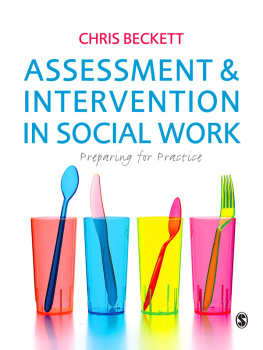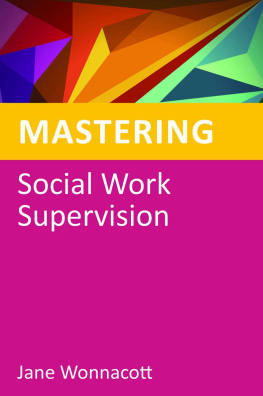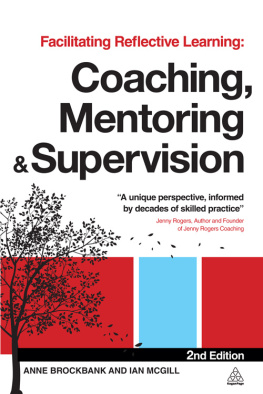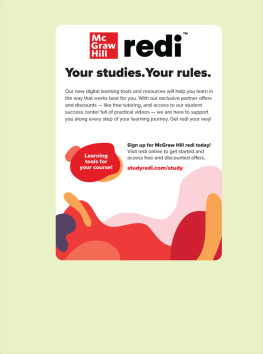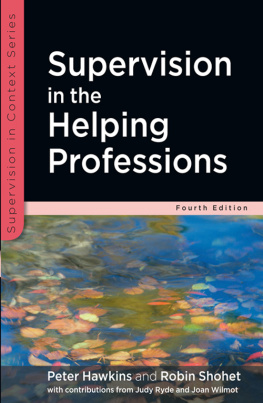SAGE Publications Ltd
1 Olivers Yard
55 City Road
London EC1Y 1SP
SAGE Publications Inc.
2455 Teller Road
Thousand Oaks, California 91320
SAGE Publications India Pvt Ltd
B 1/I 1 Mohan Cooperative Industrial Area
Mathura Road
New Delhi 110 044
SAGE Publications Asia-Pacific Pte Ltd
3 Church Street
#10-04 Samsung Hub
Singapore 049483
Chris Beckett 2021
First published 2021
Apart from any fair dealing for the purposes of research or private study, or criticism or review, as permitted under the Copyright, Designs and Patents Act, 1988, this publication may be reproduced, stored or transmitted in any form, or by any means, only with the prior permission in writing of the publishers, or in the case of reprographic reproduction, in accordance with the terms of licences issued by the Copyright Licensing Agency. Enquiries concerning reproduction outside those terms should be sent to the publishers.
Library of Congress Control Number: 2020937856
British Library Cataloguing in Publication data
A catalogue record for this book is available from the British Library
ISBN 978-1-5297-0073-2
ISBN 978-1-5297-0072-5 (pbk)
Editor: Kate Keers
Assistant editor: Ruth Lilly
Production editor: Martin Fox
Copyeditor: Jo North
Proofreader: Derek Markham
Indexer: Martin Hargreaves
Marketing manager: Camille Richmond
Cover design: Wendy Scott
Typeset by: C&M Digitals (P) Ltd, Chennai, India
Printed in the UK
At SAGE we take sustainability seriously. Most of our products are printed in the UK using responsibly sourced papers and boards. When we print overseas we ensure sustainable papers are used as measured by the PREPS grading system. We undertake an annual audit to monitor our sustainability.
About the author
Chris Beckettis now a freelance writer, but was for most of his working life a social worker, a social work manager and a social work lecturer. For many years, he has taught supervision on Continuing Professional Development courses attended by social work managers and senior practitioners, but also by managers from other professions such as nursing and occupational therapy. Chris is based in Cambridge, where he lives with his wife and several animals, and has three adult children and one granddaughter. In addition to writing a number of textbooks for social workers and human service professionals, he is the author of eight novels and three short story collections, and has won prizes for his fiction writing. He tries to apply his story-telling experience to his non-fiction books, in order to make them as lively and readable as possible.
Introduction The scope of this book
This book has been written for two groups of people:
- Managers, practitioner-supervisors and practice educators in social work agencies and other human service organisations who are engaged in supervising staff and students. (The term practice educator is used here to refer to those who supervise students on placement: depending on the profession, this role may be referred to by other names such as mentor or clinical educator.)
- Supervisees, particularly students and newly qualified practitioners, who want to understand what they should be able to expect from supervision, and what is expected of them.
The literature I cite in this book comes from many disciplines, including nursing, physiotherapy and medicine, and I also draw on work from the field of business and management. My own background is in social work, and most of my own examples will come from social work, but I believe this book should be relevant to supervisors, educators and supervisees in other human service organisations: for instance, in housing associations providing social care services, and in youth work agencies and mental health services in which relationship-based casework is a significant component of practice.
The book has developed out of teaching I have done over many years mainly with social workers but also with people from other professions such as nursing who are either moving into a role which involves taking supervisory responsibility for others, or have been performing that role for a while and are seeking to reflect on and develop their practice. I wanted to try and set down what I have learnt over the years from all those hours talking to supervisors, and from my own experience, in a previous career, of supervising a team of social workers over a ten-year period, latterly as the manager of a children and families team.
To some readers experienced supervisors and experienced supervisees much or most of what I say will already be familiar. If that applies to you, I hope you will not feel patronised by my going over things that you have already thought about. But in my experience, learning isnt just about being taught completely new things. I myself often find it helpful to unpack what I think I already do know and perhaps know so well that I dont always think about it very much and thus get a chance to re-examine and refine it a little, or even just restore my engagement with it. I hope you will feel the same on reading this book.
For supervisors and practice educators
The kind of supervision I address in this book is the kind that occurs in a human service organisation in which both accountability supervision and clinical supervision are necessary, and in which these are usually combined together. (I explain what I mean by this in .)
Supervision varies both between and within professions, and different kinds of supervision are indicated depending on the level of experience of the supervisee, but there are many general principles that apply across the board, whether the supervisee is a new and inexperienced student or a seasoned practitioner.
At the ends of chapters I will include Notes for supervisors. These are aimed at all supervisors, including practice educators.
All supervisors are of course also supervisees themselves, and the way they supervise others will be influenced by the supervision they themselves are now receiving and have received in the past. So my comments addressed to supervisees are relevant to supervisors as well. (In fact, if you want to be a good supervisor, its not a bad start to think about how you were



